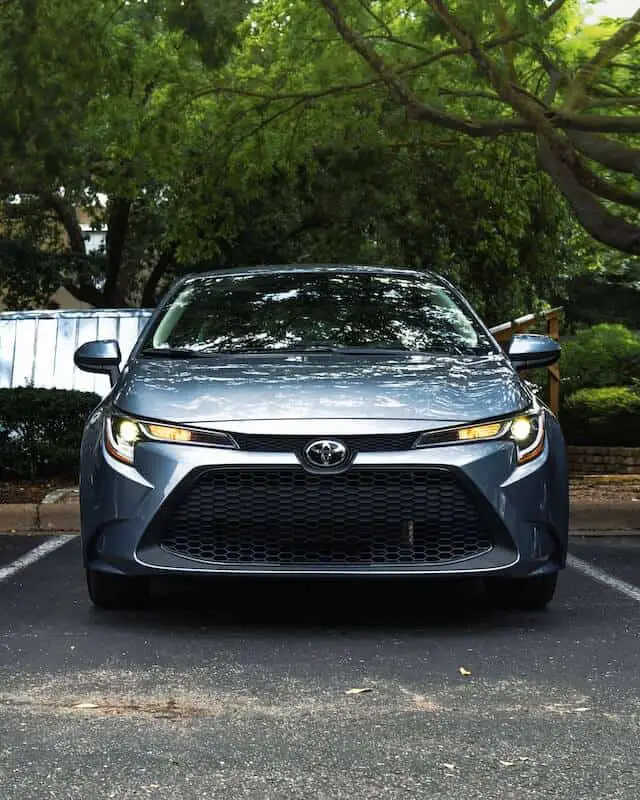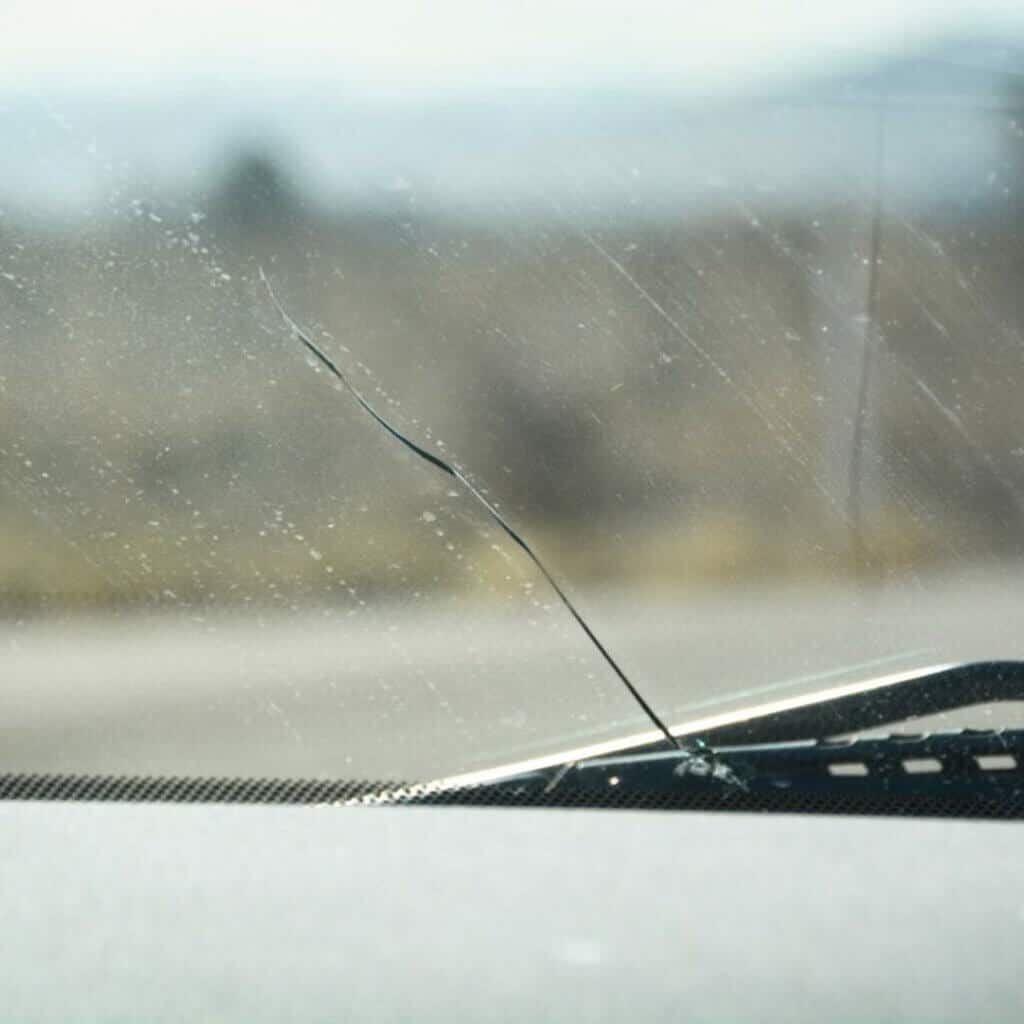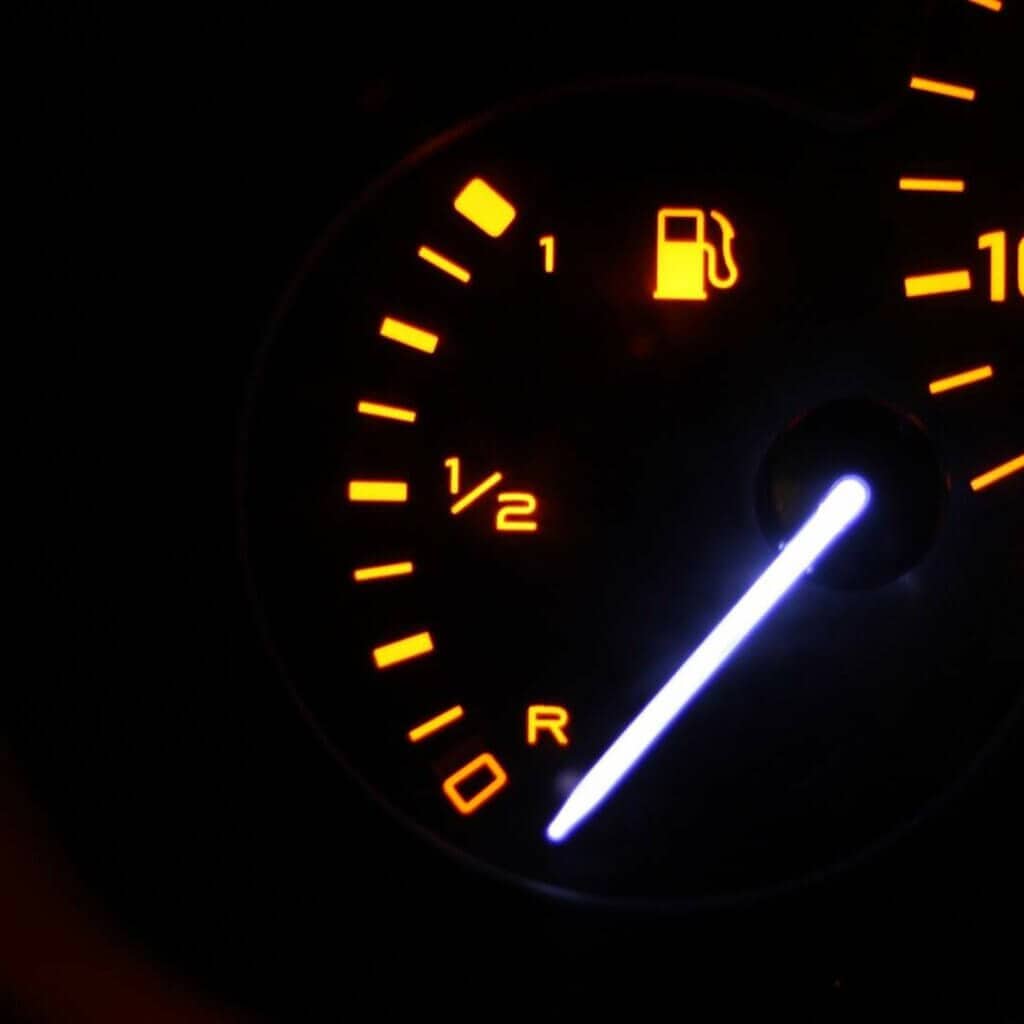Various systems can cause a weird noises in your car. Humming noise in car getting louder with speed could be one of them.
You’ll need to find out whether the humming noise appears when the vehicle is idle or at a high or low speed. So, the first step is to find out where the noise is coming from and the car part responsible.
In short, a faulty wheel bearing is the most likely cause of a humming noise. Other causes are faulty tires, failing transmissions, engine problems, steering issues, and so on. In this article, I will explore all the possible causes of a humming noise in your car and how to fix it in each case.
Humming Noise In Car Getting Louder With Speed

There are quite a lot of reasons why your car will make a loud humming noise, a few of them are highlighted below.
1. Tires
Every driver will experience some hum from tires rolling on asphalt. But if this sound is louder than usual, then there is a problem you need to deal with. This humming is a result of something not spinning properly. Humming tires could be caused by faulty wheel bearings, imbalance, misalignment, or uneven wear on the tires.
You can solve this problem by getting your tires rotated according to the manufacturer’s specifications and having your wheel bearings inspected and serviced by a trained professional. If you find out that your tires are too worn out, you will need to replace them. The US Department of Transportation recommends a tire replacement when they reach 2/32” of tread depth.
The following issues will cause your tires will make a humming noise;
2. Uneven Tire Wear
This is the most likely cause of a humming noise in car tires. Weak rear shocks, improper tire pressure, and alignment issues can cause this problem. If you observe that your tires have worn in unusual patterns, a temporary solution is to do a tire rotation. The most common wear pattern is the rear tire cupping—a low and high pattern in the tire that causes a change in the surface area that makes contact with the road. [1]
3. Wheel Bearings
Wheel bearings are the component of your car that helps the wheel spin and keeps it in place. If you hear a humming noise from this component, the spheres are not rolling over one another perfectly. You’ll hear it with every rotation, even if it’s a small damage. A faulty wheel bearing has some internal damage—the inside of the spheres may not be perfectly round, or they could be jammed. Also, a lack of lubrication or cavitation can cause bad wheel bearings.
Cars typically have one- or two-wheel bearings in a hub assembly, and the bearings vary based on car model and manufacturer. As the bearings wear down, it can cause your car to make a humming noise, and speeding up the vehicle puts more stress on them. The pitch of this humming noise can also change to a whirring noise as you increase your speed.
You ought to change worn or damaged bearings as soon as possible. If you fail to do so, you may worsen the problem. For example, a severely damaged bearing can cause a hub to come loose from its spindle.
4. Wheel Alignment
This can also be a cause of the humming noise. When the alignment malfunctions, it can cause vibrations in the car. An improperly aligned wheel is one of the leading causes of uneven tire wear.
5. Cracked Serpentine Belt
Your car’s serpentine belt can dry up over time and begin to break. This would cause the belt to slacken and make it unable to grip the necessary pulleys adequately. In addition, since the belt is not tightly gripped, it would slip around the outer diameter of the pulleys. This can cause a humming noise in your vehicle that gets louder with speed.
A very damaged belt can be flung off the pulleys, and all belt-driven attachments will become inoperable.
6. Damage to Inner CV Joint
A CV joint is a part of the vehicle’s transmission, and its function is to transfer torque to the wheels. If this part is damaged, it produces symptoms similar to a damaged wheel bearing, and the sound will get louder with increased speed. It doesn’t always sound like a hum but could also be a spin or crackling. Poor lubrication, driving habits, or CV joint wear can cause this hum.
7. Car Oil
Low quality or lack of car oil can cause a humming noise while driving. Old and dirty oil doesn’t lubricate as well as it would if it were fresh car oil. As a result, your engine will produce a louder hum than you’re used to. This is because, without lubrication, moving parts of the engine won’t slide with ease but grind together, creating a much louder hum.
8. Failing Transmission
This is the component of the car that transmits engine power to a car’s drive axles. Your car’s transmission can break down over time. This problem will also cause a hum in some circumstances, but it is usually hard to identify. Also, when a transmission’s fluid level drops to a low level, you will hear a humming noise. The solution is to check them and replace the whole fluid, not topping off the old fluid with a new one.
9. Faulty Torque Converter
This converter is sort of a fluid coupling that transmits power from the engine to a rotating driven load(wheels). Unfortunately, a torque converter wears and breaks down more easily than other transmission parts. As a result, a faulty torque transmitter can act similarly to a failing transmission problem.
Your torque converter can make various kinds of noises when it is faulty, including a humming sound. The sound may be inaudible while the car is idle but will increase in volume when you put the transmission in gear. [2]
The replacement of a torque converter will require transmission removal.
10. Catalytic Converter
A catalytic converter is a metal canister installed in the exhaust system that functions to reduce vehicle emissions and pollution. It is filled with a chemical catalyst that helps convert the vehicle’s emissions into harmless gases. [3]
To check if this converter is behind the humming noise, someone needs to check under the car while the engine is revved.
11. Engine Problems
Engine issues can cause a loud humming noise from the front end of your car, and because there are a couple of reasons for this problem, it can be challenging to pinpoint the exact cause of the trouble. It will depend on the model of the car you have and also the engine type. A comprehensive car engine examination is recommended for the best results.
There are a couple of engine problems that can cause a humming noise;
- Leakage in the exhaust or power steering system
- A loose belt
- A faulty power steering system or low fluids in the engine’s power system
12. Damaged Water Pump Bearings
A water pump uses an impeller to push coolant through your engine block, cylinder heads, radiator, heater core, intake manifolds, and all connecting hoses and lines. Since the water pump is connected to several parts, a water pump noise will resonate throughout the engine, making it difficult to identify. [4]
A simple way to check for a faulty water pump is to check for water pump shaft movement. So, with a defective pump bearing, you will hear a squealing, humming, or grinding noise from the engine.
13. Steering Issues
If the fluid is low in the power steering system, the steering pump will draw air instead of fluid, causing a humming noise. But this problem is easy to identify because you will see the fluid level in the power steering fluid reservoir. Also, if the steering wheel is not in a neutral position, it can cause a humming noise. [5]
My Car Makes Humming Noise When Parked

If you hear a humming noise when your car is parked, it means that something is moving even though your vehicle isn’t. This hum is most likely caused by a loose drive belt or other parts connected to the belt, such as the power steering pump, water pump, or one of the idlers that hold the belt in its place. You can fix the loose belt yourself by tightening the belt. Also, air escaping from an exhaust or air intake leak can cause a humming noise.
My Car Makes a Humming Noise at 40mph

If your car hums while driving at 40mph, you may have a problem with the rear wheel bearing. Another possible reason is your tires need to be balanced. Another possibility is your engines are not properly tuned, or you have an issue with the transmission. Once you’ve narrowed down the possibilities, see your mechanic as soon as possible for proper repairs.
Final Thoughts
You can’t help but hear noises when you drive, but when this sound is loud and constant, it’s not something to sweep under the rug. In this article, I’ve shown you a lot of possible reasons why your car makes a humming noise.
So, in any case, you’ll have an idea of what’s going on in your car, and you can even go as far as fixing the problem yourself.




